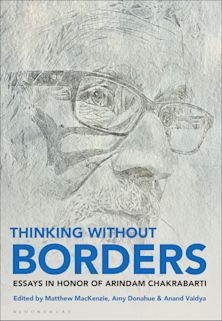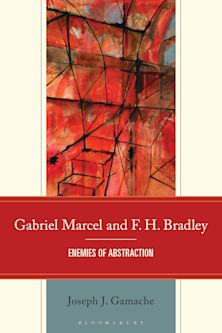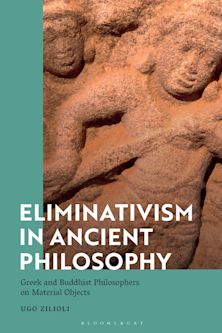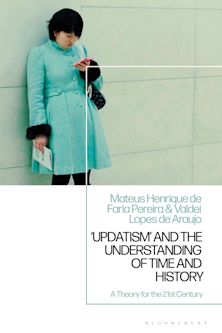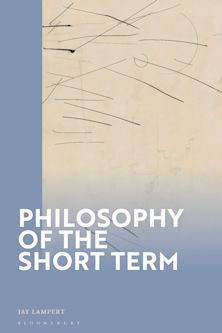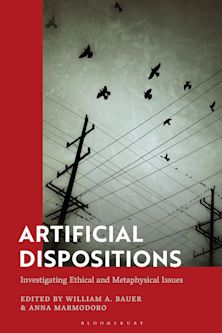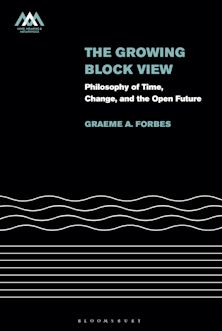- Home
- ACADEMIC
- Philosophy
- Metaphysics
- Creaturely Cosmologies
Creaturely Cosmologies
Why Metaphysics Matters for Animal and Planetary Liberation
Creaturely Cosmologies
Why Metaphysics Matters for Animal and Planetary Liberation
This product is usually dispatched within 2-4 weeks
- Delivery and returns info
-
Flat rate of $10.00 for shipping anywhere in Australia
You must sign in to add this item to your wishlist. Please sign in or create an account
Description
Metaphysics—or the grand narratives about reality that shape a community—has historically been identified as one of the primary oppressive factors in violence against animals, the environment, and other subordinated populations. Yet, this rejection of metaphysics has allowed inadequate worldviews to be smuggled back into secular rights-based systems, and into politics, language, arts, economics, media, and science under the guise of value-free and narrowly human-centric facts that relegate many populations to the margins and exclude them from consideration as active members of the planetary community. Those concerned with systemic violence against creatures and other oppressed populations must overcome this allergy to metaphysics in order to illuminate latent assumptions at work in their own worldviews, and to seek out dynamic, many-sided, and relational narratives about reality that are more adequate to a universe of responsive and creative world-shaping creatures. This text examines two such worldviews—Whitehead’s process-relational thought in the west and the nonviolent Indian tradition of Jainism—alongside theorists such as Gilles Deleuze and Félix Guattari, Judith Butler, Donna Haraway, Karen Barad, that offer a new perspective on metaphysics as well as the creaturely kin and planetary fellows with whom we co-shape our future.
Table of Contents
2 The Strange Creatures of Process Thought
3 Disruptive Souls in Jain Cosmology
4 Intra-Actions 1: Practices of Freedom in Jainism
5 Intra-Actions 2: Practices of “Reworlding” in Process Thought
6 Provocative Live Without Robbery
Product details
| Published | 05 May 2015 |
|---|---|
| Format | Hardback |
| Edition | 1st |
| Extent | 176 |
| ISBN | 9781498501798 |
| Imprint | Lexington Books |
| Illustrations | 1 b/w photos; 3 graphs; |
| Dimensions | 233 x 161 mm |
| Series | Contemporary Whitehead Studies |
| Publisher | Bloomsbury Publishing |
About the contributors
Reviews
-
A fine example of [a] multi-pronged, intersectional approach can be found in Brianne Donaldson's Creaturely Cosmologies: Why Metaphysics Matters for Animal and Planetary Liberation (Lexington 2015). Donaldson creatively takes up the challenge of linking work in critical animal studies with a broader ontological and political framework that extends beyond the human in a variety of directions. Her work is crucially important for current discussions in animal studies inasmuch as she is committed as both an activist and theorist to animal liberation while also working to expand non-anthropocentric politics to include a wide variety of other beings and relations.
The Year's Work in Critical and Cultural Theory
-
[Donaldson] argues that better metaphysics are also good for animals, and she makes a strong case.
Society & Animals
-
In Brianne Donaldson’s book, Creaturely Cosmologies, animal ethics and the question of being human are considered in new and inviting ways. . . . Creaturely Cosmologies converses with exciting and emerging perspectives in quantum theory, animal rights activism, and environmentalism while also offering fresh approaches to the works of Derrida, Foucault, Butler, Deleuze, and others who might be familiar to readers of this journal. As a whole, Creaturely Cosmologies is an accessible body of work for any wishing to appreciate an initial foray into Critical Animal Studies, Jainism, and Process-relational philosophy.
Journal for the Study of Religion, Nature and Culture
-
Both these books [Creaturely Cosmologies and Creaturely Love: How Desire Makes us More and Less than Human byDominic Pettman] are significant contributions in the domain of Critical Animal Studies and Planetary Studies as both launch a substantial critique of speciesism or species exceptionalism. . . . Based on her studies of Jainism, Donaldson perfectly utilizes Jainist Ahimsa in her exposition of post-hierarchist society of planetary future. . . . Both the books succeed in significant ways to plough new furrows in the domain of planetary studies.
Café Dissensus
-
“With this important and exciting work, Brianne Donaldson simultaneously advances several important conversations, as well as demonstrating the interconnections that bind them. By integrating eco-criticism and metaphysics–two discourses long seen as mutually antithetical–she enlivens both, and points toward ways in which each can be mutually supportive. Similarly, her integration of Whiteheadian process thought and Jainism builds upon and extends earlier work on these two philosophies in exciting and important new directions, showing the relevance of both of these ‘creaturely cosmologies’ to conceptualizing a less cruel, more ecologically conscious global civilization. Her constructive use of Jain thought and practice, in particular, helps to spotlight a very important, ancient, and all too often overlooked wisdom tradition with profound relevance to contemporary issues.
The need to rethink humanity’s relationship to the rest of the planet has never been more urgent. With this work, Brianne Donaldson shows herself to be a leading light in showing the way to the kind of cosmological thinking that is so badly needed today.Jeffery D. Long, professor of religion, philosophy, and Asian studies, Elizabethtown College
-
Rarely does a single book captivate us at both ends of the spectrum simultaneously. Bridging the metaphysics of East and West, Donaldson will lead you to deeper feeling of ‘the creaturely multitudes, the active shadows of our buzzing universe, too long marginalized by a dominant and falsely separated human.’ These pages invite you into new adventures of thought, co-feeling, intra-being, and activism.
Philip Clayton, Ingraham Professor of Theology, Claremont School of Theology, Author of In Quest of Freedom: The Emergence of Spirit in the Natural World

ONLINE RESOURCES
Bloomsbury Collections
This book is available on Bloomsbury Collections where your library has access.















